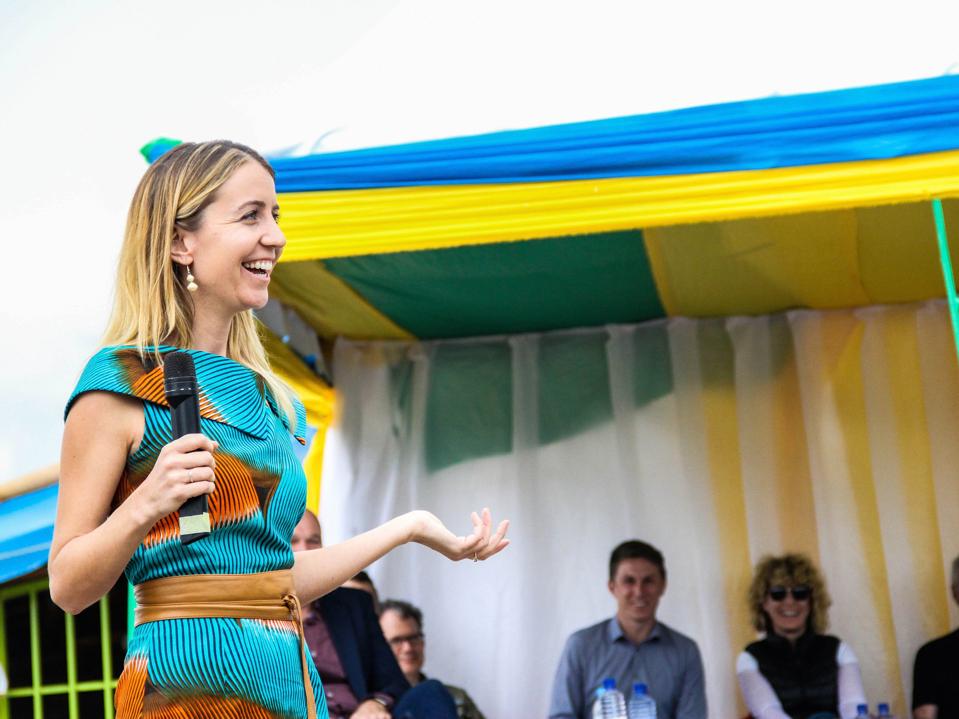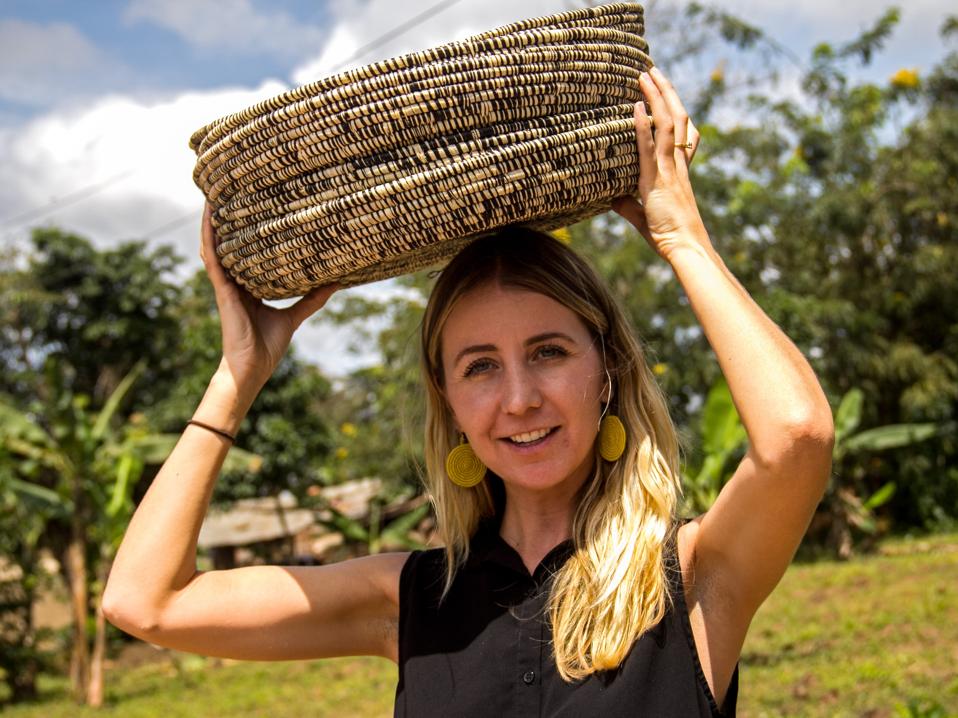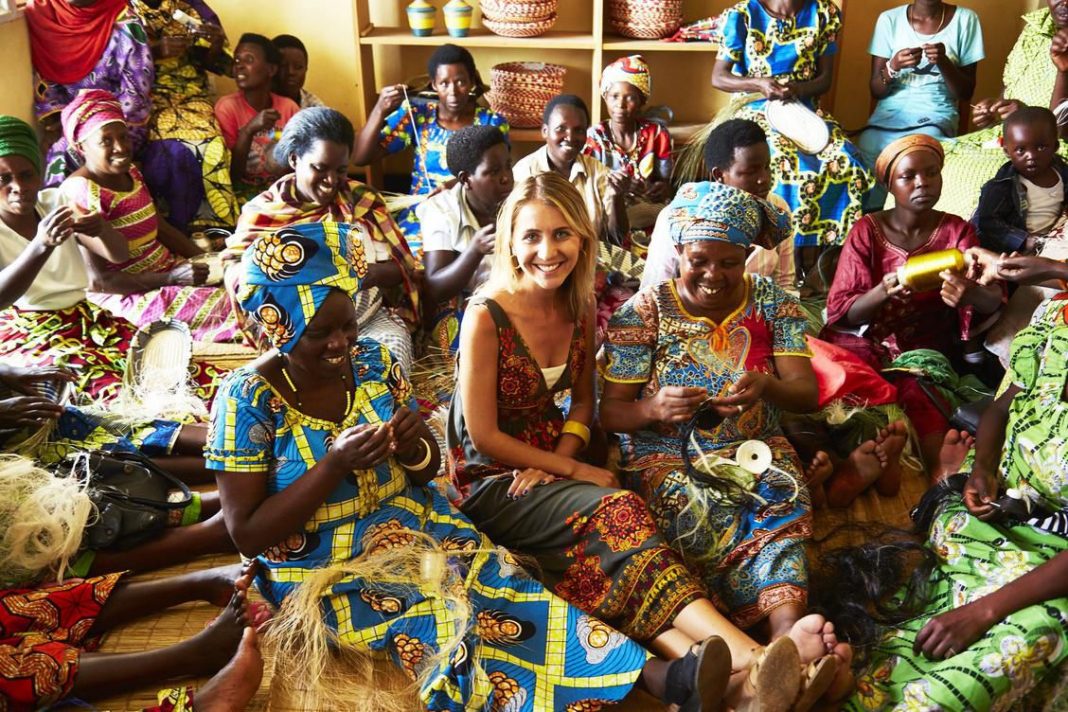
Alicia Wallace cofounded Kazi to employ African artisans and combat poverty by creating jobs.
Kazi
Alicia Wallace is the cofounder and COO of Kazi, a social business working to create thousands of jobs by training artisans from rural parts of Africa to design products made from local, natural materials for export to the rest of the world. Her aim is to use profitable enterprise as a change agent for poverty in the developing world. In order to make this happen, she travels regularly to East Africa to scale handmade production and increase impact. Affecting more than 21,000 people, Kazi is currently the largest artisan employer in Africa. It is also one of five companies with a Nest Seal, which assures conscious consumers that items have been ethically handcrafted in a home or small workshop.
In March, Kazi is launching See Kazi in Your Space . The new app is designed to help shoppers visualize how Kazi products will look in their homes. “Our handcrafted products can be curated in so many different ways. We want to help make the online shopping experience more creative and engaging for customers,” says Wallace.
Determined to create positive change in the world, Wallace at first thought she should become a lawyer. But after working for a few years at a law firm, she realized that legal advocacy wouldn’t provide the direct sense of impact she desired. So, she went looking for a sustainable approach to fighting poverty in rural African communities, and she never looked back.

Wallace always has been eager to make a positive impact on the world.
Kazi
“In 2009, I traveled to Sierra Leone with a team of doctors and nurses,” Wallace says. “Going to Africa was on my bucket list. I was there just to explore and travel. But in one village, I saw men, women and children living in extreme poverty. When I came back home, it wasn’t something I could forget. I knew that I had to do something to empower these people in a sustainable way. I wanted a solution that wasn’t a temporary band-aid. So, I set out to interview and learn from everyone I could.” Along the way, Wallace met Greg Stone, who became her business partner. Their goal with Kazi: To create jobs.
Unfortunately, the Covid-19 pandemic has been hard on Kazi, whose customer base is made up primarily of small, independent retailers across America, such as neighborhood bookstores, gift shops, and apparel stores. All were closed during the early months of the pandemic, greatly affecting Kazi’s ability to connect with their customers. Revenue dropped significantly. In addition, on the production side, the countries where Kazi produces were shut down, and production “has been on and off since then,” Wallace reports.
“There have been a handful of ways we’ve responded to the pandemic,” Wallace explains. “First, our artisans still had families to provide for. So, we found a grant that allowed us to provide food for all 3,625 men and women who work for us, as well as their 5.7 dependents each, for two months. This made sure they didn’t slide back into the poverty that they once knew.”
Second, Kazi quickly adapted how they sell, moving to create virtual trade shows. Now, a year into the pandemic, virtual trade shows have become common. But in the summer of 2020, it was still a novel idea. It provided an innovative way for Kazi to connect with customers.
Finally, Kazi removed barriers to shops selling their products online by, for example, offering financing. “A lot of these solutions came from a questionnaire that we sent our customers, asking how we could be the best partner we could be during this time,” Wallace says.

Wallace has found her life purpose in running Kazi.
Kazi
Although matching rural artisan production with retail in the US, Europe, and globally can prove challenging, especially when production in Africa is extremely slow, Wallace loves her career. She feels fulfilled and satisfied getting to make a positive impact on the world.
To others looking to tap into their life purpose, Wallace counsels, “Be curious. Travel the world and meet different people. Learn about the problems that we face. Somewhere along the way, you’ll connect with a new solution that’s uniquely yours. From there, pursuing your purpose requires tenacity and perseverance. Stay focused.”




